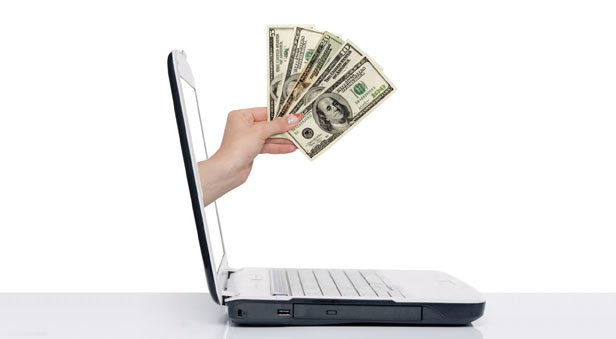Business Impact
A Dollar For Your Data
Information about you is free for the taking on the Web. A new crop of entrepreneurs wants you to collect.



Unless your name is Oprah Winfrey or Warren Buffett, you’d be hard pressed to find anyone to pay $1,000 to hear about your purchasing habits. Anyone who wants this information can glean much of it from your behavior on the Internet anyway. Companies tracking and aggregating our clicks, taps, and swipes are the ones making fortunes. Individuals are not.
But a startup called Personal thinks it can change this. Its starting point is an idea that may seem strange to the Facebook generation: an online network where users control what information advertisers can access.
Personal, based in Washington, D.C., is among a number of startups that want to help people “collect, curate, and derive value” from their own online data, according to the Personal Data Ecosystem Consortium, a group formed in 2010 to encourage such efforts; it lists 30 businesses as members.
Personal cofounder Shane Green believes that many Internet surfers are primed to share more detailed and revealing information than they commonly do today—so long as they stay in control, and possibly earn money from it.
Users of the network, launched last November, are encouraged to upload information of all sorts, trivial (pizza orders) or sensitive (student loan records, medical prescriptions). They place the data in a “vault” and can grant other people or Web programs access to relevant portions. You could enter your home alarm code and share it only with houseguests, or grant a financial advisor access to details about your retirement accounts.
This year, the company plans to add a marketplace where people will be able to sell access to their personal information—for instance, an intention to buy an SUV in the next four weeks. Local car dealers, Green believes, would want to pay for the chance to advertise or offer incentives to such users because the strategy offers higher odds of a payoff than, say, targeting ads through Google. Green says an individual could earn $1,000 a year in this manner; Personal would take a percentage of advertiser fees.
Green started Personal in 2009 and has raised $11 million from investors. He previously founded an online company that helped owners of stadiums and other facilities create maps of buildings or private events like the Super Bowl. His customers wouldn’t have allowed him to resell the data, yet that is exactly what individuals do when they simply give away their location and much more. It is a phenomenon Green considers a “fundamental instability” in the marketplace.
Economists, however, have found major problems with the idea of personal-data marketplaces. Individuals struggle to put a value on their data. And within today’s market structure, the value can vary dramatically depending on how it’s measured, but often information is exchanged for mere pennies, says Alessandro Acquisti, co-director of Carnegie Mellon University’s Center for Behavioral Decision Research.
“I would like these services to succeed,” Acquisti says. “At least they provide some more transparency. But I fear they may not.” It’s unclear so far how many users Personal has; the company declined to say. As of now, Green’s startup idea appears to have won more attention from analysts and privacy watchdogs than from consumers.
In the end, people will have to see enough benefit from such services to invest time in maintaining an account, which can involve manually entering information such as the numbers associated with bank accounts or warranties. But Green believes there are big productivity benefits to storing one’s valuable information in a single location. Users will have access to a personal data search box, and a feature to be introduced soon will let them safely complete online forms with a single click.
Green says the ultimate challenge for private data networks like his will be maintaining security. As with a bank, if you lock a lot of value in a vault, robbers will try to get in.